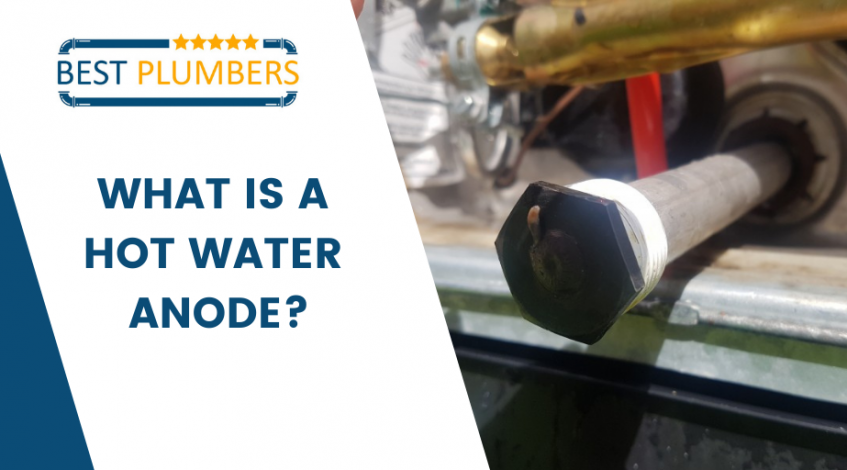Your hot water system has one function, to heat your water. You might and likely do use that water then for different purposes. Most of the time hot water unit works fine, conducting heat through metal and that heated metal then heats your water. But how is this possible? We all learn in primary school how metal rusts in the water! That is where the action of the hot water anode comes in. This article offers some useful information about what a hot water system anode is, how it works, when it needs replacing and how often.
The sacrificial anode
The hot water anode is a metal component that is highly reactive in the hot water system. It is there to protect it from corrosion and keeps the system working for longer. But the part has a shorter life span than the hot water unit and after five years it is a good idea to replace it. Without that one part, the hot water system would soon be full of rust and brown water would come out of your tap. What’s worse is that its lifespan is also severely impacted.
If you have a tank-based hot water system then you very likely have a sacrificial anode as most come with one. It is a metal (magnesium or aluminium) rod that is coated in zinc and goes inside the tank that holds your hot water. Its purpose is to attract any impurities and minerals in the water. The name sacrificial comes from the idea that it degrades and rusts instead, sacrificing the anode, a small part, for the tank.
More on why a hot water system needs an anode
No matter what type of hot water system you have or look at, it will have one, even possibly two sacrificial anodes. As mentioned they are there to make sure the minerals in the water do not cause corrosion to the inside of the tank. Corrosion happens where an extremely small electrical current moves through the water and the metal. The current around the anode releases ions in the water to dissolve. At other sites in the tank cathodic areas complete the circuit when there is an effective anode there. This circuit when completed ensures in the cathode areas, the tank walls, there is no corrosion.
Eventually, anodes become too corroded to keep working and if not replaced in time the tank will react with the tiny metal particles causing it to become anodic and corrosion can happen. The whole hot water system will rust fairly quickly after. Therefore paying attention to the lifespan of the anode for the hot water system is important. It sacrifices itself to protect the system and that anode lasts for about 5 years. When an owner replaces their anodes every 5 years, the hot water system’s lifespan is extended for a good 5 to 10 years!
An anode for hot water system is not just for hot water tanks!
Sacrificial anodes are also used in other areas where corrosion is a risk to metal structures. The hulls of ships, steel structures in damp conditions, distribution systems, refineries, above and below ground tanks, pipelines and so on.
Replacing the hot water system anode
This is not an easy DIY job, it is something even those who think of themselves as pretty handy should leave to an expert. With their training and experience, you should look for a licensed hot water plumber to handle this for you. There are a number of reasons for this, the hot water and steam is a danger, and connections to the gas or electrical supply are involved. Carrying out the replacement of a sacrificial anode by yourself is not advisable. As well as the safety concerns it takes understanding and skill to do it without risking damage.
Finding a licensed professional plumber is a lot easier these days with the internet at your fingertips. Do a search for local options, see whether you want a small business or a larger brand, whether they have the kind of experience you prefer and even what other customers have to say about their experience with them, and their promptness, communications and attitude.
Conclusion
If you are noticing signs of rust in your water and your hot water tank, this could be a sign that the hot water system anode needs replacing. The best way to know for sure is to have your plumber come and take a look at what you are experiencing. From there they can tell you if it is the anode or something else and what that involves in terms of repairs and costs. If it is the sacrificial anode, this is a pretty easy repair for a licensed plumber to handle and it will extend your tank’s life. They can also offer you advice on other things you might do to extend the life of the hot water system if you are concerned.







